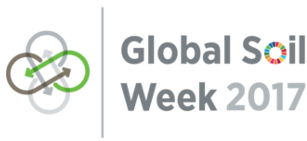“Resources must be considered and treated as an integrated system, as it were, in the nexus. Whenever we talk about soils, we also need to talk about water and energy. This is the only way of raising the awareness of soils among policy-makers and the general public.” IASS Executive Director Klaus Töpfer emphasised this at an event to launch the International Year of Soils 2015 on 5 December. At the Federal Ministry for the Environment, Nature Protection, Building and Nuclear Safety, Töpfer called on Germany to adopt an “integrated approach” to combating persistent land degradation worldwide. Representatives from politics, science and society were invited to the event by the ministry, the IASS, the Federal Environmental Agency and the Gesellschaft für Internationale Zusammenarbeit (GIZ). The 5 December was incidentally also the first ever International Day of Soils.
Among other topics, the discussion focussed on Germany’s global responsibility for soils in the light of German imports of foodstuffs, fodder and raw materials. What is Germany already doing to meet this responsibility and where does it need to take more action? Rita Schwarzelühr-Sutter, parliamentary state secretary in the Federal Ministry for the Environment, urged all relevant actors to use the Year of Soils as an opportunity to redouble their efforts to protect soils worldwide. Bernhard Krüsken, Secretary-General of the German Farmers’ Association, said that huge land consumption in Germany was the biggest problem from the point of view of the farming community. Every day, an area of 70 hectares is sealed, including fertile land that could be used for growing food crops. At the same time, Krüsken pointed out that a more productive and efficient use of land in Germany and Europe was necessary to reduce so-called ‘virtual land imports’. Virtual land consumption refers to the amount of land that is actually used in Germany – taking account of, for example, imports of fodder such as soya from other countries. “As long as agricultural and environmental policies in Germany and the EU continue to reduce the amount of land available for agriculture, these virtual land imports will increase. As part of its international responsibility, Germany has to maintain a sustainable, productive and efficient use of land at home”, stressed Krüsken.
Nicole Grunewald from the think tank Global Footprint Network explained the complex reasons behind the phenomenon of virtual land imports: “German demand for the products of agriculture and forestry has led to a situation where almost 85 per cent of the required cultivation area lies beyond our borders. We thus ‘export’ the problems of land degradation associated with that and show precious little interest in the situation of the countries in question.” Carolin Callenius from Bread for the World also called for more responsible consumption. She described the problem of land-grabbing by agricultural multinationals and highlighted the socio-economic dimension of Germany’s land usage. Often, regional farmers in affected areas are forced to cede their land to multinationals, thus losing the basis for their livelihoods and food security. In this way, poverty and hunger are exacerbated.
“The European Union’s focus on subventions actually promotes this indirectly”, explained Reinhild Benning from Friends of the Earth Germany. European policies, in particular the failed EU Framework Directive, because the Member States were unable to reach agreement on rules. But, as Karl Falkenberg, Director-General for Environment at the European Commission, pointed out, this major setback has had one positive side effect: “The theme of land has once again gained momentum in Germany and the EU.” Reinhard Kaiser, head of the Resource Efficiency and Soil Protection Directorate at the Federal Ministry for the Environment, Nature Protection, Building and Nuclear Safety stated in no uncertain terms: “Germany has to lift the blockade of an EU Framework Directive on Land.” Germany’s commitment to soil protection already extends to other parts of the world. For example, with the special unit “EINEWELT ohne Hunger” (ONEWORLD without Hunger), the Federal Ministry for Economic Cooperation and Development has invested large sums in land rehabilitation projects in the Global South. Efforts are also being made to anchor ‘Land Degradation Neutrality’ in the Sustainable Development Goals.
With the Global Soil Week, which will take place again from 19 to 23 April 2015, the IASS offers a platform for dialogue where various actors from politics, society and academia can exchange views and forge lasting cooperations in a range of different fields. The activities of the Global Soil Week are closely linked to international processes. There was agreement amongst the panelists and participants of the event to launch the International Year of Soils that collaboration transcending borders and sectors is crucial when it comes to the cross-cutting themes of soil and land.



